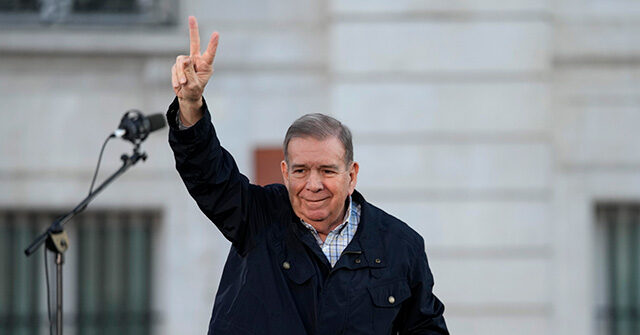On Tuesday, the U.S. administration led by President Joe Biden officially recognized Edmundo González, a former Venezuelan diplomat, as the “president-elect” of Venezuela, marking a significant political statement regarding the outcome of the controversial July 28 presidential election. This recognition underscores the administration’s stance that González emerged victorious against Nicolás Maduro, the current socialist dictator, in a fraudulent election deemed illegitimate by various international observers and the Venezuelan opposition. Secretary of State Antony Blinken emphasized on social media the importance of respecting the will of the Venezuelan people as expressed in the election, which he characterized as clear and decisive in favor of González.
The July 28 election in Venezuela, characterized by the presence of Maduro on the ballot 13 times and a slate of carefully selected opposition candidates, has been widely criticized for its lack of transparency and fairness. Following the election, Maduro’s regime proclaimed him the winner while failing to release essential voter data, stirring significant doubts regarding the authenticity of the results. In contrast, Venezuelan opposition groups, utilizing unofficial tallies, contended that González won by a landslide. This discrepancy has led to calls for international scrutiny, as many observers view the election as an exercise in consolidating Maduro’s power rather than a legitimate democratic process.
The U.S. recognition of González follows months of geopolitical maneuvering, as Blinken communicated this decision during discussions at the G20 summit in Rio de Janeiro. The timing of the announcement appears strategic, aimed at heightening pressure on Maduro, who is scheduled to be inaugurated for another term on January 10, 2025. Historically, Maduro’s previous term was secured through a similarly contested election in 2018, which was condemned globally. By recognizing González now, the Biden administration seeks to lend credence to the Venezuelan opposition’s struggle for democracy and human rights amid growing tensions and repression within the country.
Public outrage erupted following the election as Venezuelans took to the streets to protest against what they perceived as Maduro’s fraudulent victory. The regime’s response was brutal, with reports of violent crackdowns that resulted in numerous casualties and widespread detentions, including the imprisonment of minors on charges of terrorism. These actions prompted condemnation from human rights advocates and the United Nations, which highlighted ongoing human rights abuses under Maduro’s rule. Such violent repression, termed by U.N. experts as crimes against humanity, has heightened the urgency for international intervention in Venezuela’s political crisis.
In the face of persecution, González has found refuge in Spain after the Maduro regime issued an arrest warrant against him on various charges. Despite his exile, González remains resolute about returning to Venezuela for a formal swearing-in ceremony on January 10, asserting that he will do so in accordance with Venezuelan constitutional mandates. His declarations suggest a determination to reclaim legitimacy for the opposition, seeking to galvanize support from both domestic allies and the international community in the ongoing battle against Maduro’s regime.
Maduro’s government, on the other hand, has fiercely rejected the legitimacy of Blinken’s statements, labeling them as the latest chapter in U.S. foreign interference. The Venezuelan Foreign Minister, Yván Gil, dismissed the recognition of González as “ridiculous,” comparing him to the discredited opposition figure Juan Guaidó. The Maduro regime has maintained a narrative that positions itself against what it describes as imperialist attempts to undermine Venezuelan sovereignty. Meanwhile, U.S. negotiations with the Maduro regime regarding election concessions have seemingly yielded minimal real change, as Maduro’s government has failed to demonstrate a commitment to genuine electoral reform despite earlier agreements. This ongoing tension highlights the complex dynamics of Venezuelan politics as the country grapples with deep-seated issues of governance, democracy, and human rights amidst international scrutiny and intervention.

